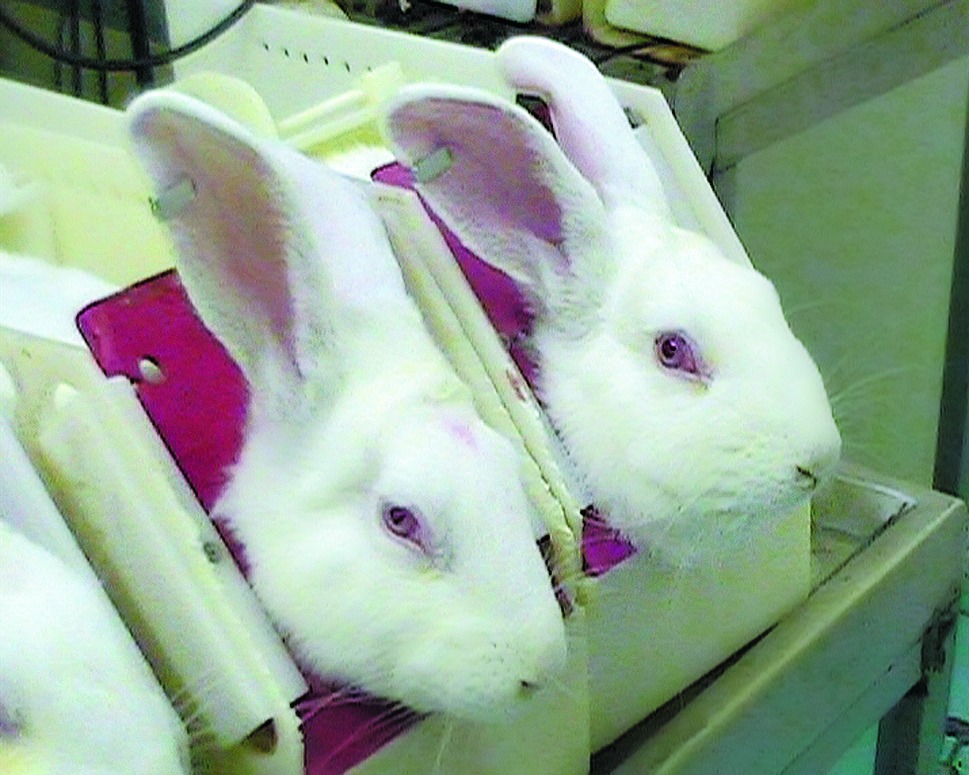
Picture courtesy: HSI India
New Delhi, Aug 23: A government panel has set a two-year deadline for India's drugs sector to phase out tests on rabbit eyes used in the evaluation of certain medicines but decried by animal rights activists as cruel and obsolete.
The government's drug regulatory agency's Drug Technical Advisory Board (DTAB) has recommended a two-year phase-out period for the tests that involve exposing the eyes of laboratory rabbits to candidate medicines to determine whether they are safe for human use.
The DTAB move, which is yet to be accepted and notified by the Union health ministry, follows representations to the government by animal protection activists seeking an immediate ban on the test and the use of alternatives that they say are equally or more reliable.
"This is a step in the right direction, but an immediate ban would have been a more appropriate response to companies that have for years smugly disregarded the ever-growing toolbox of non-animal testing methods," Gauri Maulekhi, government affairs liaison for the Humane Society International (HSI), said in a statement issued by the non-government animal protection organisation. "We expect the health ministry will act swiftly to notify the change so that companies are required to implement it as soon as possible."
The HSI said the rabbit eye test was developed about 70 years ago to measure eye and skin irritation using rabbits while the animals are locked in restraints. The test chemical is applied to an eye or on the shaved skin on their backs.
"Animals are monitored for up to two weeks, without pain relief, for signs of chemical damage that can include swelling, ulceration, bleeding and blindness," the HSI said. "In addition to its obvious cruelty, the test is not reliable or relevant to humans," it claimed.
Alternatives, including reconstructed human skin and human corneal tissues, have been available for over a decade, the HSI said. "While India banned the testing of cosmetics on animals two years ago, drugs continue to be tested on rabbits," said Alokparna Sengupta, deputy director of HSI India.
The animal protection groups in India had also approached the Union women and child development minister, Maneka Gandhi, who had written to the health ministry. "Her note along with our demands had gone to the country's drug regulators in March this year," said Sengupta.
The tests on rabbits currently mandated under drug testing rules are typically conducted in in-house or contract animal testing laboratories across the country, Sengupta said. The HSI, she said, does not have estimates of the number of rabbits that undergo these tests in India each year.
"While drug companies submit the numbers of animals exposed to various drugs during toxicity tests, the government does not think it important to make public the numbers of animals tested," Sengupta said.
A scientific team with the People for Ethical Treatment of Animals organisation had earlier this year told a conference in the US that "non-animal" alternative testing techniques are superior to conventional tests on rabbits in predicting the reactions of human eyes to candidate drugs.











